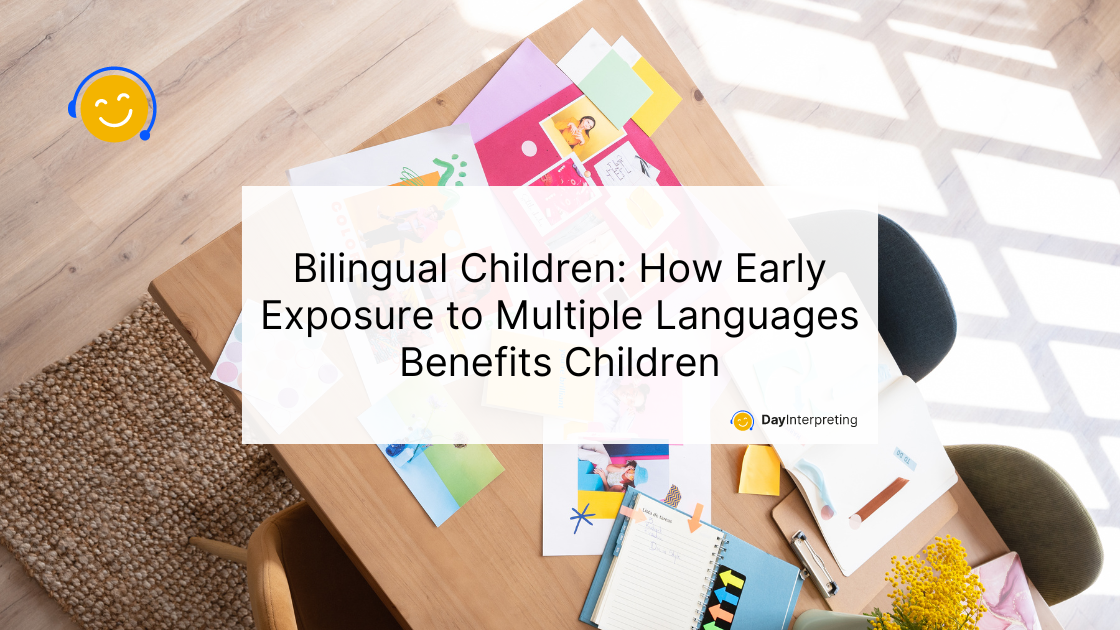Raising bilingual children can be an exciting and rewarding experience. Imagine your little one switching between English and Spanish or French and Chinese with ease! But beyond the novelty, there are significant benefits to exposing children to multiple languages early on. Let’s dive into how being bilingual can positively impact your child’s development.
The Brain Benefits of Bilingualism
Boosting Cognitive Skills
One of the most significant advantages of raising bilingual children is the cognitive boost it provides. Research indicates that children who grow up learning more than one language have enhanced problem-solving skills, improved memory, and heightened creativity. This is due to their brains being constantly engaged in a mental workout, managing two sets of vocabulary, grammar rules, and sounds.
Enhancing Academic Performance
Bilingual children often stand out academically. Learning multiple languages can deepen their understanding of language structure, helping them grasp complex concepts in subjects like math and science. Enrolling them in a specialized math program can reinforce this advantage, offering additional support and resources tailored to their unique learning needs. Moreover, being bilingual can pave the way for easier learning of additional languages in the future, giving them a competitive edge in our increasingly globalized world.
Social and Emotional Advantages
Building Empathy and Cultural Awareness
Exposure to different languages is synonymous with exposure to different cultures. Bilingual children tend to be more open-minded and empathetic. They learn early on that there are multiple ways to view the world, fostering a deep appreciation for diversity. This cultural awareness can help them build stronger, more empathetic relationships with people from various backgrounds.
Improving Communication Skills
Children who grow up bilingual often have superior communication skills. They become adept at interpreting social cues and can switch between languages and social contexts with ease. This adaptability makes them more effective communicators, both in their personal relationships and in professional settings later in life. As a parent, you can feel proud and confident in the communication skills your bilingual child is developing.
Practical Benefits in a Globalized World
Enhanced Career Opportunities
In today’s interconnected world, bilingualism is a highly sought-after skill. Companies value employees who can communicate with clients and colleagues across the globe. By raising a bilingual child, you are giving them a significant advantage in the job market, opening doors to exciting international career opportunities.
Travel and Adventure
Imagine traveling to another country and communicating effortlessly with the locals. Bilingual children have this edge. They can enjoy richer travel experiences, connect with people from different cultures, and navigate foreign environments confidently and easily.
Common Myths About Raising Bilingual Children
Myth 1: It Confuses the Child
Some parents worry that learning two languages might confuse their child, but this is a myth. Children are incredibly adept at separating languages. They might mix words or phrases occasionally, but this is a normal part of language development and not a sign of confusion.
Myth 2: It Delays Speech Development
Another common concern is that bilingualism will delay a child’s speech development. Research shows that while bilingual children might start speaking a bit later than their monolingual peers, they catch up quickly. Any initial delay is temporary and does not indicate a long-term issue.
Tips for Raising a Bilingual Child
Start Early
The earlier you introduce your child to multiple languages, the better. Babies’ brains are incredibly receptive to new sounds and patterns, making infancy an ideal time to start.
Consistency is Key
Consistency is crucial when raising a bilingual child. Try to create a routine where each parent or caregiver speaks a different language. For instance, one parent might speak English, while the other speaks Spanish. This helps the child distinguish between the two languages and learn them simultaneously.
Make it Fun
Incorporate languages into daily activities in fun ways. Use bilingual books, songs, and games to make learning enjoyable. Children learn best when they are engaged and having fun, so find creative ways to integrate languages into their playtime and everyday routines.
Final Thoughts
Raising bilingual children is a journey filled with remarkable benefits. The advantages are vast and long-lasting, from boosting cognitive skills to enhancing social and emotional development. By embracing bilingualism, you are not only giving your child the gift of language but also preparing them for a brighter, more connected future. So, start early, be consistent, and most importantly, make it fun. Your bilingual baby will thank you for it!





0 Comments